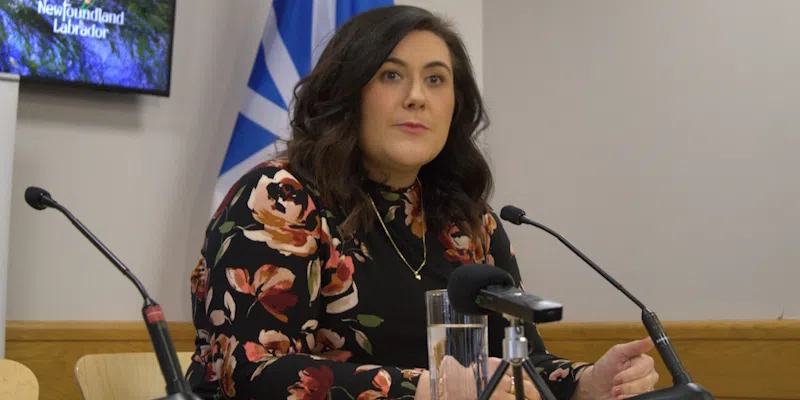The fluorescent lights of St. Clare’s Hospital cast long shadows across Dr. Sarah Johnson’s face as she described her upcoming resignation. “We’ve been raising alarm bells for years,” she told me, her voice steady but tired. “At some point, you have to ask yourself how much more you can give to a system that isn’t giving back.”
Dr. Johnson is one of 31 specialists at St. Clare’s Hospital in St. John’s who recently announced their intent to resign, creating what many are calling an unprecedented healthcare staffing crisis in Newfoundland and Labrador. The mass exodus threatens specialized services in cardiology, gastroenterology, and internal medicine at one of the province’s major healthcare facilities.
Standing before reporters yesterday, Health Minister Tom Osborne projected confidence despite the gravity of the situation. “I want to reassure patients that services will continue as usual,” he stated, even as questions swirled about how the province could possibly maintain continuity of care with such significant staffing losses.
The specialists cite chronic understaffing, excessive workloads, and insufficient resources as their primary reasons for leaving. Many have been working unsustainable hours for years, a situation that provincial healthcare advocates have warned would eventually lead to burnout and departures.
“We’re not just talking about doctors being tired,” explains Maria Peters, healthcare policy analyst with the Newfoundland and Labrador Health Coalition. “We’re talking about physicians who can’t provide the level of care they’re trained to deliver because the system lacks the infrastructure to support them.”
When I visited St. Clare’s emergency department last month for an unrelated story, the strain was visible. Nurses moved quickly between beds, physicians carried multiple charts, and waiting patients showed the resigned patience of those who’ve come to expect delays. What wasn’t immediately visible was the specialist shortage that hospital staff described as a “slow-moving crisis.”
The Canadian Medical Association has documented growing physician burnout rates across the country, with a 2023 survey finding that 53% of physicians report symptoms of burnout, up from 30% pre-pandemic. Rural and remote areas like Newfoundland have been particularly vulnerable to staffing shortages.
Minister Osborne indicated that the province is actively recruiting replacements and considering temporary solutions, including bringing in specialists from other regions. “We have contingency plans in place,” he assured, though details remain sparse. He also mentioned ongoing negotiations with the specialists who have submitted resignations, suggesting the possibility that some might reconsider.
Dr. Emily White, President of the Newfoundland and Labrador Medical Association, expressed skepticism about quick fixes. “You can’t replace decades of collective experience overnight,” she noted when I called her for comment. “Each of these specialists represents years of training and institutional knowledge that’s essential to patient care.”
For patients like Gerald Murphy, a 63-year-old awaiting cardiac follow-up at St. Clare’s, the uncertainty is troubling. “I’ve been with my cardiologist for fifteen years,” he told me from his home in Mount Pearl. “The thought of starting over with someone new—if there even is someone new—is frightening when your heart’s involved.”
The crisis at St. Clare’s reflects broader challenges in Canadian healthcare. According to Statistics Canada, approximately 6.5 million Canadians do not have a regular healthcare provider, while waiting times for specialist services continue to grow across provinces. The Canadian Institute for Health Information reports that wait times for specialist consultations average 11.1 weeks nationally, with Newfoundland and Labrador often exceeding this figure.
Community advocates are calling for systemic solutions beyond emergency recruitment. “We need to address why physicians are leaving in the first place,” says Jennifer Blake, director of the Patient Advocacy Network of Newfoundland. “Competitive salaries matter, but so do sustainable workloads and proper support systems.”
Minister Osborne acknowledged that long-term fixes are needed but emphasized immediate service continuity. “My priority right now is ensuring that no patient experiences an interruption in care,” he stated.
As the sun set over St. John’s yesterday, light still burned in the windows of St. Clare’s Hospital. Inside, specialists who have already submitted their resignations continued caring for patients, honoring their commitment despite their decision to leave. Most have given the required 90-day notice, creating a narrow window for the province to implement solutions.
For Dr. Johnson and her colleagues, the decision to resign wasn’t made lightly. “Most of us trained here, built lives here,” she explained. “We want to serve this community, but not at the cost of our own health and the quality of care we can provide.”
As Newfoundland and Labrador faces this healthcare staffing crisis, the coming months will reveal whether the Minister’s confidence in service continuity is justified or whether patients will bear the brunt of a system that has long operated at its breaking point.






